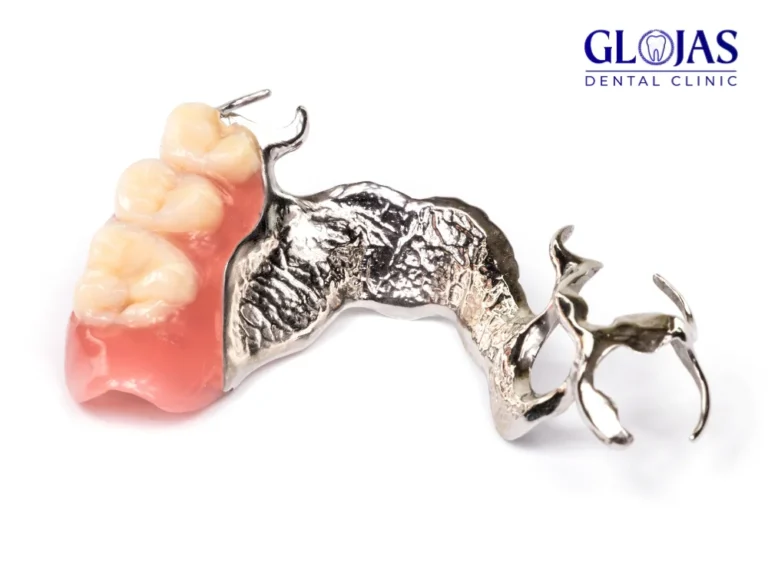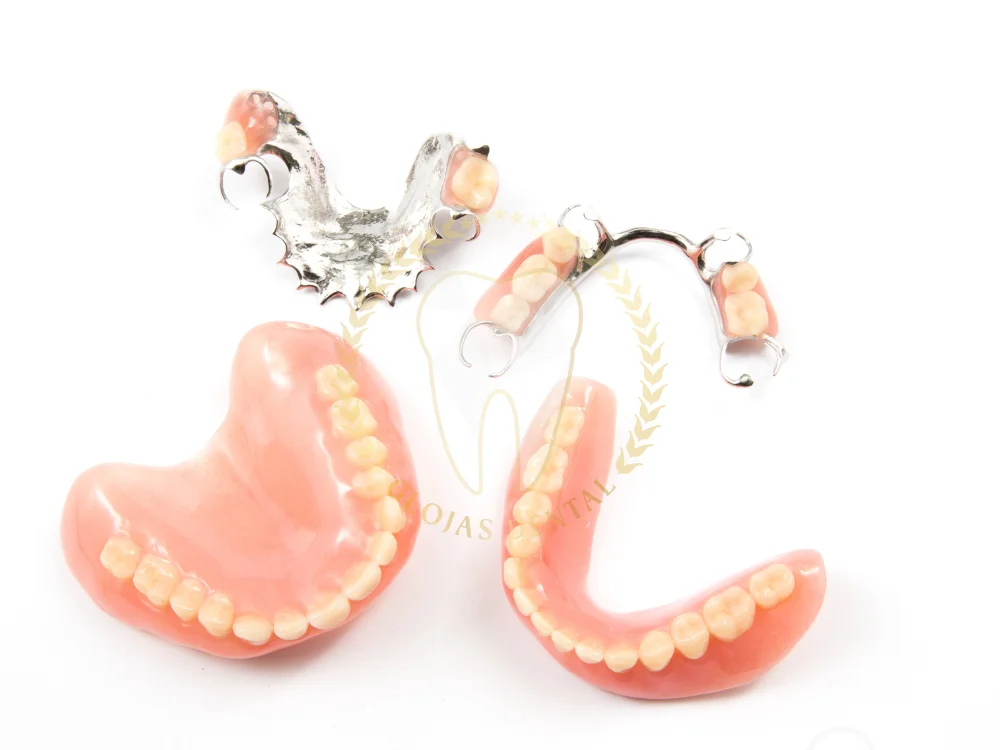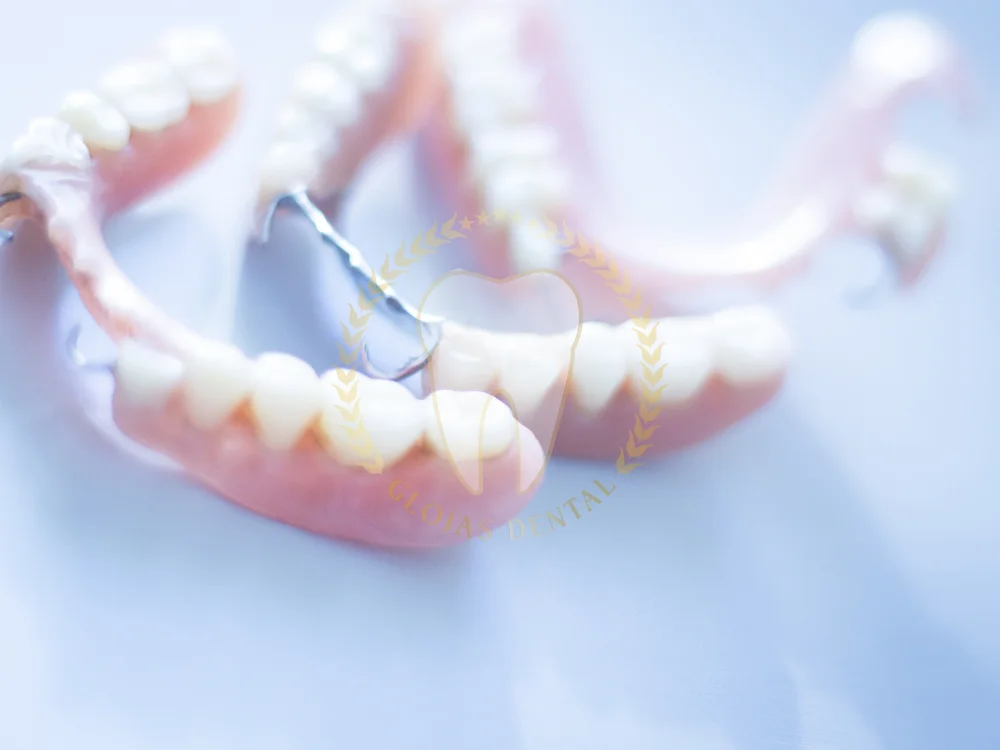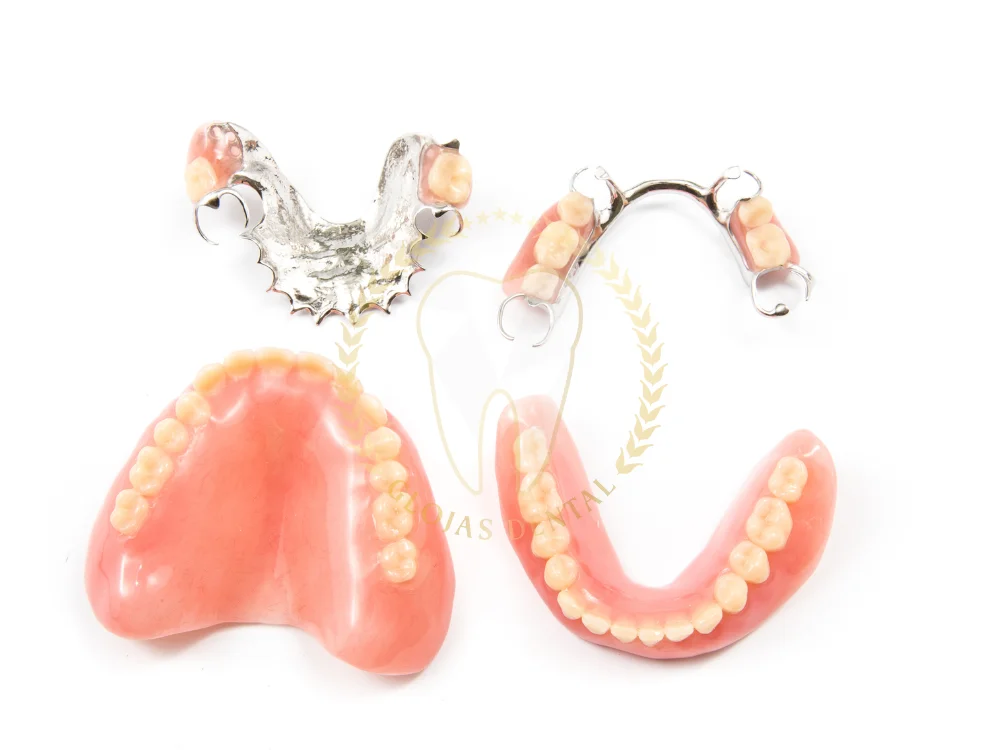Partial dentures are a game-changer for individuals seeking to restore their smile and oral functionality. Whether you’re new to the concept or exploring your options, this guide will provide a detailed overview of what partial dentures are, their types, benefits, and care tips. Let’s dive in!
What Are Partial Dentures?
Partial dentures are removable dental appliances designed to replace missing teeth while preserving the health and alignment of the remaining natural teeth. Unlike full dentures, partial dentures are suitable for individuals who still have some of their natural teeth intact.
These prosthetics are custom-made to fit the unique structure of your mouth, ensuring comfort and functionality.
Types of Partial Dentures
Understanding the different types of partial dentures can help you make an informed decision:
1. Acrylic Partial Dentures
Acrylic partial dentures are made from a pink-colored acrylic base resembling gum tissue, with replacement teeth embedded. They are often less expensive but can be bulkier than other types.
2. Cast Metal Partial Dentures
This type combines a metal framework with gum-colored acrylic, making it durable and lightweight. Cast metal partial dentures are highly recommended for their long-term reliability.
3. Flexible Partial Dentures
Made from a flexible thermoplastic material, these dentures are lightweight, comfortable, and hypoallergenic. Their flexibility allows for a snug fit, making them a popular choice for those with sensitive gums.
4. Immediate Partial Dentures
Immediate partial dentures are placed right after tooth extraction, eliminating the waiting period for permanent dentures. However, they may require adjustments as the mouth heals.
Advantages of Partial Dentures
Opting for partial dentures offers several benefits:
- Improved Functionality: Partial dentures restore chewing and speaking abilities.
- Enhanced Appearance: They fill gaps, giving you a natural-looking smile.
- Affordable Solution: Compared to dental implants, partial dentures are a cost-effective option.
- Preservation of Natural Teeth: By preventing neighboring teeth from shifting, they help maintain oral health.
Who Are Partial Dentures For?
Partial dentures are suitable for individuals who:
- Have lost some teeth but retain others.
- Seek a budget-friendly tooth replacement solution.
- Are unable to undergo invasive procedures like implants due to medical conditions.
Your dentist will assess your oral health to determine if partial dentures are the right choice for you.
How Are Partial Dentures Made?
Creating partial dentures involves several steps to ensure a perfect fit:
- Consultation: The dentist evaluates your oral health and discusses options.
- Impressions: A mold of your mouth is taken to create a customized denture.
- Fabrication: The dentures are crafted in a dental lab using the chosen materials.
- Fitting: Once ready, the partial dentures are fitted and adjusted for comfort.
- Follow-Up: Regular check-ups ensure proper fit and address any concerns.
Caring for Your Partial Dentures
Proper care can extend the life of your partial dentures and maintain oral hygiene:
1. Cleaning Tips
- Remove and rinse dentures after eating.
- Use a soft-bristle brush and mild denture cleaner daily.
- Avoid abrasive cleaners that can damage the denture material.
2. Handling
- Handle dentures carefully to avoid drops or breakage.
- Store them in water or a denture solution when not in use to prevent warping.
3. Regular Dental Visits
- Schedule routine dental check-ups to ensure the dentures fit properly.
- Address any discomfort or damage promptly.
Common Challenges and Solutions
1. Initial Discomfort
New partial dentures may feel awkward at first, but this usually subsides as you adjust. Practice speaking and chewing to speed up the adaptation process.
2. Soreness or Irritation
If soreness persists, consult your dentist for adjustments. Avoid self-repair, as it can damage the denture.
3. Breakage
Accidents happen, but broken dentures should always be repaired professionally to maintain functionality and fit.
Alternatives to Partial Dentures
While partial dentures are a fantastic solution, other options may suit your needs:
1. Dental Implants
Implants provide a permanent solution for missing teeth. However, they require surgery and a higher financial investment.
2. Bridges
Dental bridges are fixed replacements that use adjacent teeth for support. They are a durable and natural-looking alternative.
Discuss these options with your dentist to find the best fit for your lifestyle and budget.
Partial Dentures vs. Full Dentures
Aspect | Partial Dentures | Full Dentures |
Suitability | For individuals with some natural teeth | For those missing all teeth |
Cost | Generally less expensive | Varies based on material |
Comfort | Custom fit around remaining teeth | Requires full jaw alignment |
Maintenance | Similar cleaning regimen as full dentures | Similar care requirements |
Partial dentures provide targeted solutions, while full dentures cater to complete tooth loss.
How Much Do Partial Dentures Cost?
The cost of partial dentures varies based on material, complexity, and location. On average:
- Acrylic Partial Dentures: $500–$1,500
- Cast Metal Partial Dentures: $1,200–$2,500
- Flexible Partial Dentures: $700–$3,000
Consult your dentist for a detailed cost estimate and financing options.
FAQs About Partial Dentures
1. How long do partial dentures last?
With proper care, partial dentures can last 5–10 years. Regular check-ups can help extend their lifespan.
2. Can I eat normally with partial dentures?
Yes, though it may take some time to adapt. Start with soft foods and gradually incorporate harder textures.
3. Can I sleep with partial dentures?
It is generally advised to remove dentures before sleeping to allow your gums to rest and prevent bacterial growth.
4. Do partial dentures look natural?
Modern partial dentures are designed to mimic the appearance of natural teeth, offering a seamless look.
5. How do I know if partial dentures need adjustment?
Signs include discomfort, difficulty chewing, or changes in fit. Visit your dentist for timely adjustments.
6. Are partial dentures covered by insurance?
Many dental insurance plans partially cover the cost of partial dentures. Check with your provider for specific details.
Conclusion
Partial dentures offer a practical and affordable solution for individuals experiencing tooth loss. By replacing missing teeth, partial dentures can significantly improve oral function, speech, and overall quality of life.
When choosing a partial denture, several factors should be considered, including the type of material, design, and fit. Acrylic, metal, and flexible dentures are common options, each with its own advantages and disadvantages.
To ensure the longevity and effectiveness of your partial denture, it’s essential to follow proper care instructions. Regular cleaning, brushing, and soaking can help maintain oral hygiene and prevent the buildup of bacteria. Additionally, regular dental check-ups are crucial for monitoring the fit and function of your denture and addressing any potential issues.
By consulting with a qualified dentist, you can determine the most suitable type of partial denture for your specific needs and achieve a beautiful, functional, and confident smile.



